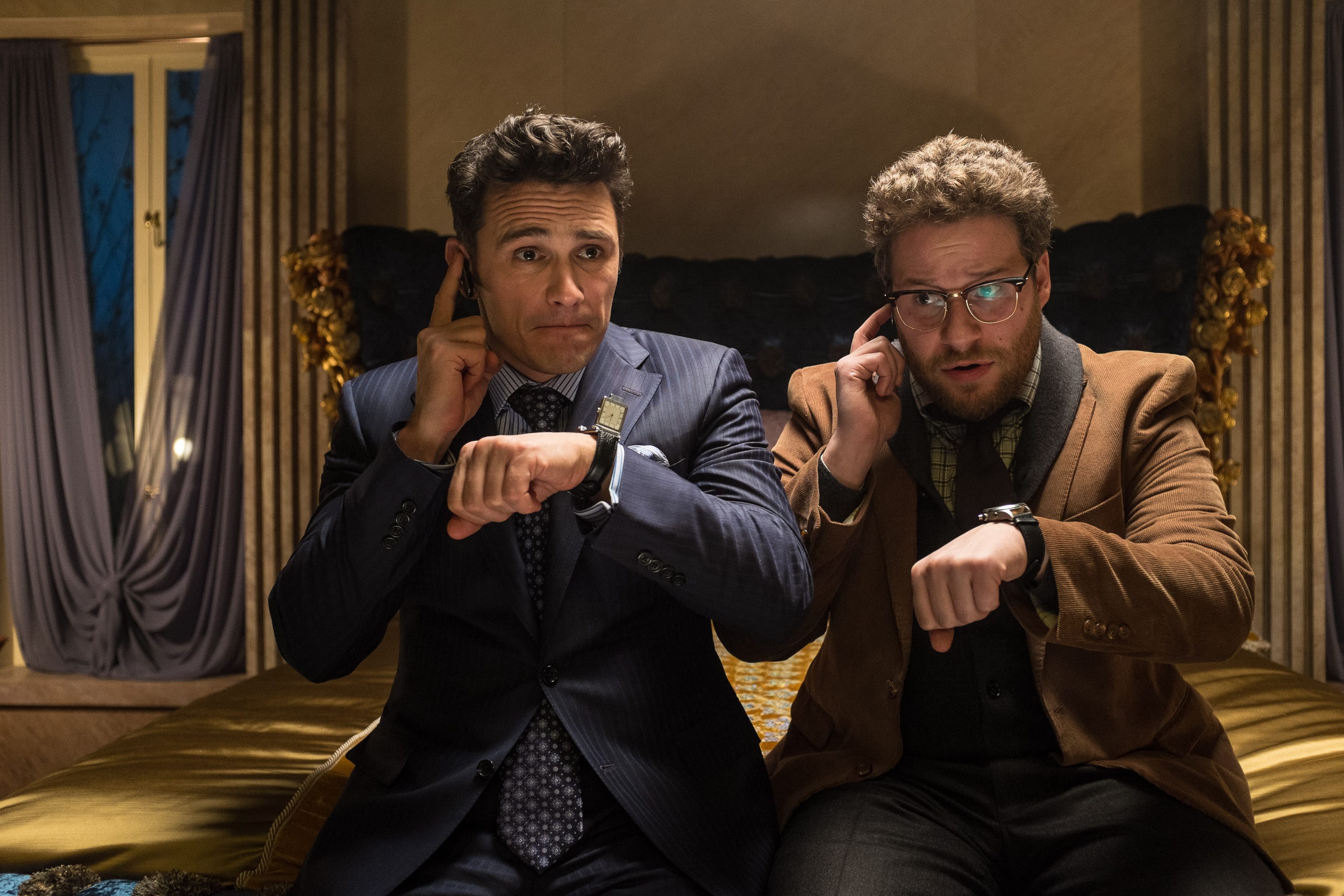The planned release of “The Interview,” a satirical movie about celebrity journalists who are asked to kill North Korean head of state Kim Jong Un (played by the actor Randall Park), made Sony Pictures, which produced the movie, the target of a major cybersecurity hack. In response, the New York premiere of the movie was canceled, stars James Franco and Seth Rogen pulled out of publicity appearances and, after threats to theaters that screen the movie, Sony Pictures told theater chains that it would understand if they chose not to show it. Finally, on Wednesday, Sony withdrew “The Interview” from theatrical distribution entirely.
As depressing as this all is, the controversy over “The Interview” also feels like a fitting coda to 2014, a year in culture that has been defined by actual and imagined totalitarianism.
The year kicked off with the Winter Olympics and an opportunity for Russian President Vladimir Putin to show himself and the nation he leads on the world stage. There is a long-standing tradition of un-free countries using the Olympics to grandstand, but corruption in the selection process and the rising cost of staging the games has raised the unsettling possibility that fewer democratic countries will be willing to take on the hassle and expense.
While some of the gleeful response to Sochi mishaps was probably overblown, there was something decidedly unnerving about the revisionism of the Opening Ceremonies.



